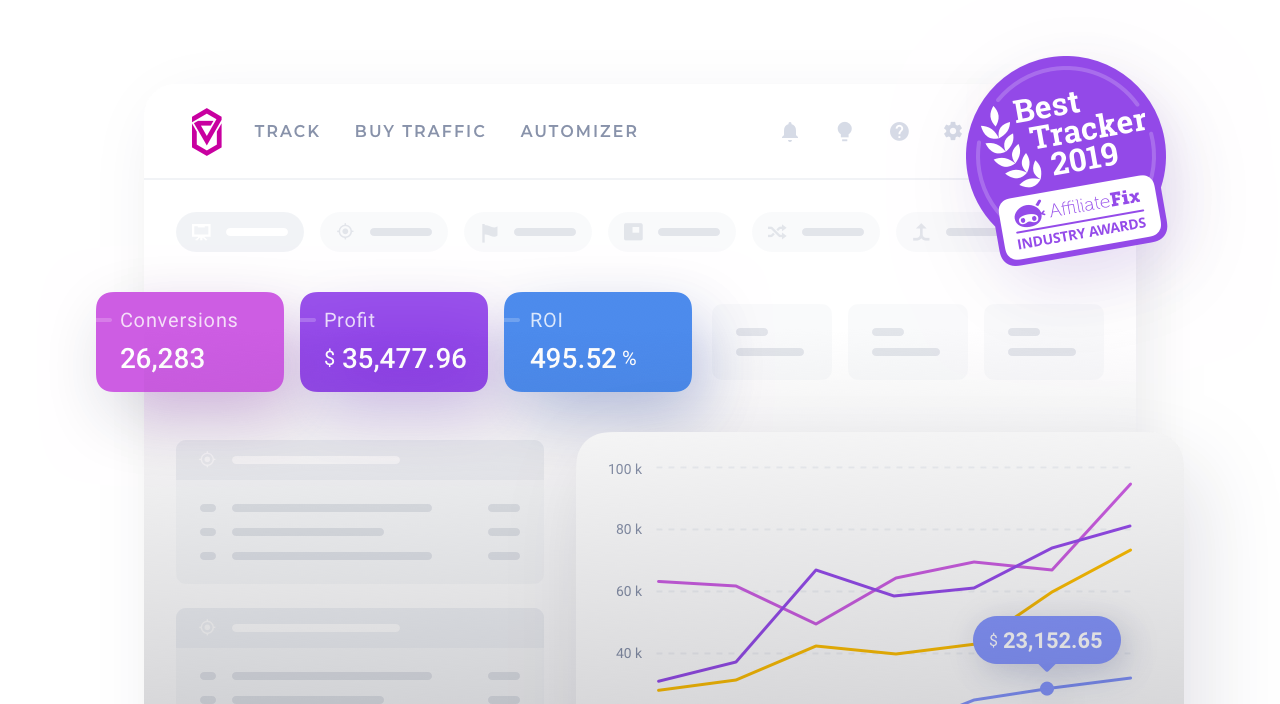Token functions
Tokens passed in URLs carry valuable information that is recorded and passed between Voluum and other platforms (traffic sources or affiliate networks). This article provides information about how you can modify the values passed in those tokens to alter them on the fly.
There are three functions that you can use to modify values passed in tokens:
- Hash
- Raw
- Percentage
How Does It Work?
Token functions are activated by adding it to tokens that Voluum sends to other platforms. For example, they may be included in offer URLs or traffic source postback URLs. To use them, follow the syntax below:
{token:function}
where:
{token} is the token name
function is the function of the token
Function: Hashing
This function allows you to anonymize values passed in the token. When hashed, a value from the token (for example: placement name) is replaced with the hashed value that is unreadable to the recipient. Every time the same value in the token occurs, it will be replaced with the same hashed value. But for different users, hashed value of the same original value will be different. For example, the att_internet_services value may be replaced with something like f7943b8d19 for one user and the g433b8d67 for the other user.
Voluum Note: There is a small but non-zero possibility that different values will end up with the same hashed value. Also note that hashing is not encrypting, so it cannot be reversed. If you pass a hashed value in the offer URL and then set it to receive it back in the postback URL, the non-hashed value will be recorded on the activation of the offer URL but a hashed one when Voluum tracks a conversion.
Example use cases: You send traffic to someone that optimizes it based on custom variables, but you don't want that person to read the exact content of those variables.
How to use it: The syntax is: {token:hash}
Example: To anonymize your custom variables, use this token in your offer URL: {var1:hash}
Function: Raw data
This function enables using decoded token values. By default, we encode token values using URL encoding (more on the topic here: https://en.wikipedia.org/wiki/Percent-encoding) because usually they are passed as a part of the query string. However, some customers may use variables as a whole path and encoding may break such as path.
For example, encoding replaces the / character to %2F, what breaks URLs passed in tokens.
Example use case: Passing URLs in tokens
How to use it: The syntax is: {token:raw}
Example: To pass a URL in a custom variable one, use the following token: {var1:raw}
Function: Percentage
Enables changing the value by a certain percentage. Note that Voluum will still record the full value.
Example use cases: Your cost model is based on the x% of payout.
How to use it: The syntax is: {token:x%}, where x stands for percentage value
Example: You want to send 80% of your payout value to your traffic source. You have to put the following token in your traffic source postback URL: {payout:80%}
Voluum Note: Voluum will record the unaltered value in the first place. For example, for the percentage function, Voluum will only record the full value and there will be no trace of the percentage values in the reports.


